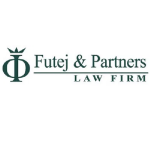Tax rules for controlled foreign companies (CFCs) were introduced into Slovak law as of January 1 2019 with the implementation of the EU's Anti-Tax Avoidance Directive (ATAD). For the time being, the CFC rules only apply to Slovak controlling companies. Beginning on January 1 2021, an expected expansion of the CFC rules will include individuals who control CFCs pursuant to the government's bill that is slated to be passed by parliament before year's end.
By definition, a Slovak controlling company of a CFC is a company whose registered office, as indicated in the commercial register, or place of effective management is in the Slovak Republic. The law stipulates that the place of effective management is in Slovakia if it is the place where management and business decisions are taken by the directors and supervisory bodies of the company, even if the company's registered office is not entered in the commercial register.
A controlled foreign company is a company with a registered office abroad where the following two conditions are met: i) the Slovak company, by itself or together with its related persons, owns directly or indirectly more than 50% of the capital of the CFC, holds a direct or indirect participation of more than 50% of the voting rights or is entitled to more than 50% of the profits of the CFC; and ii) the corporate income tax paid by the CFC abroad is less than half of the corporate income tax it would pay in the Slovak Republic.
The effect of the new rules is that the income of the low-taxed CFC is automatically re-attributed to the controlling Slovak company, which is required to include that income once yearly in its tax returns as though it had earned that income itself. However, when implementing the ATAD, Slovakia chose not to apply the CFC rules to all foreign income of a CFC company, but the rules are instead limited to the income not actually earned by the CFC – that is, where the income of the Slovak company was artificially diverted to the low-taxed CFC.
This artificial income of the CFC will be included in the tax base of the domestic controlling company in the same tax period in which it was formally accounted for by the CFC. However, to avoid double taxation, the Slovak CFC rules allow the Slovak company to deduct the actual amount of tax paid by the CFC on the artificial income abroad from its domestic tax amount. At the same time, if the CFC pays dividends to the Slovak controlling company, the tax base of the Slovak company calculated according to the CFC rules will be reduced by the amount received in dividends from the CFC. However, that will only apply where the CFC has its registered office in a non-cooperative jurisdiction; the law defines a non-cooperative jurisdiction as a jurisdiction that has not entered into a double taxation avoidance agreement or a tax information exchange agreement with the Slovak Republic, because in that case the dividends are automatically taxed at 35% domestically.
The CFC rules do not refer to any specific rate for corporations, and therefore tax will be calculated using the general domestic corporate tax rates. Taxes are always calculated on the tax base reduced by tax loss; the rate is 15% for companies earning up to €100,000 in the calendar year, including income from CFC companies reallocated under CFC rules to the Slovak company. All other Slovak companies are subject to the corporate income tax rate of 21%.
Failure to include the foreign income of a CFC in the income of a Slovak company is subject to general tax penalties, including up to €32,000 for not filing a tax return by the lawful deadline, or penalty interest of three times the base interest rate of the European Central Bank on the tax amount incorrectly calculated by the Slovak entity as the amount due. In certain circumstances, where the actions were deliberate, the Slovak controlling entity may be liable for the criminal offence of tax evasion.


